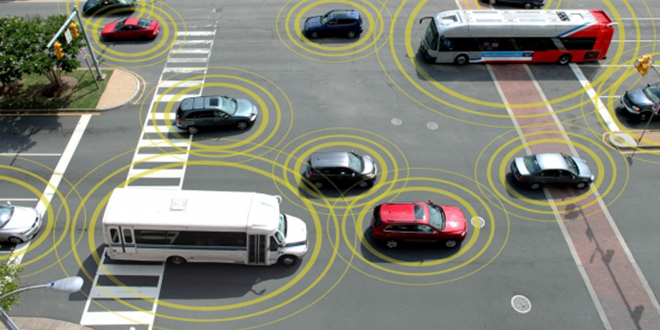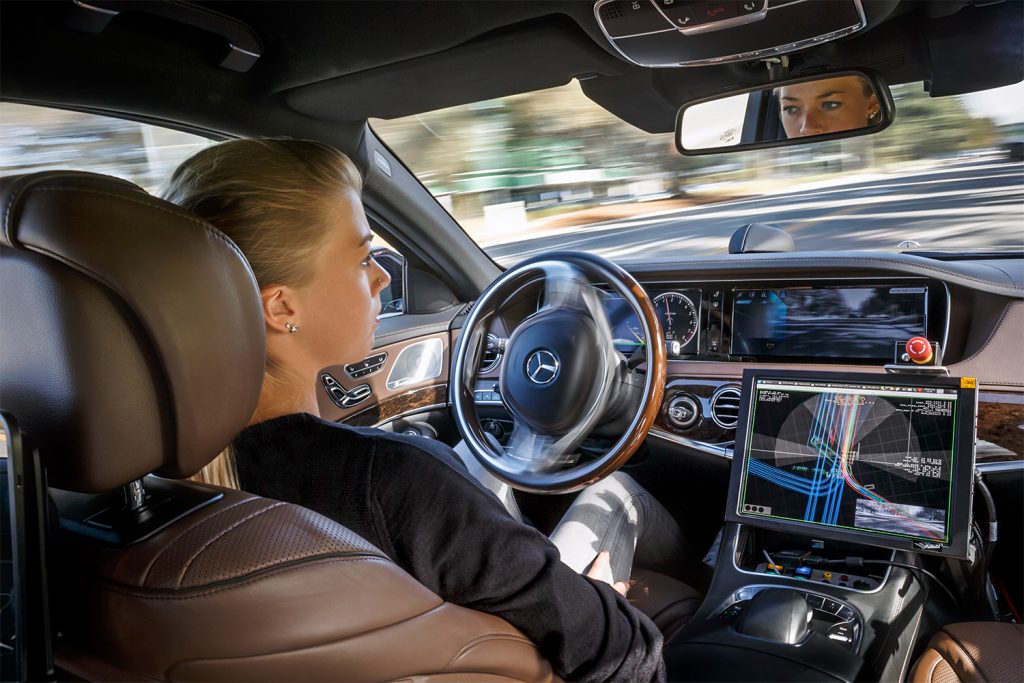With the advancements of self-driving vehicles, scheduled for soon, delivery and taxi driving jobs could be lost if fully autonomous vehicle technology is adopted in a short period of time. is it time to look for another job? Or will the human presence be essential?

The day robots will rob our jobs is still far away. But there is a machine that should do this in the near future, for some very specific trades. This machine is the autonomous car. These trades are those that involve driving or regulating vehicles.
According to most studies on the subject, unmanned vehicles will endanger millions of jobs in each country. When? The transition to roads dominated by cars without steering wheels or pedals should start in 3 or 4 years and finish in 2040.
Bye bye, taxi drivers?
Despite technical problems, the automation of our vehicles seems to be moving. In addition to automotive manufacturers (BMW, Nissan, Toyota, Ford, Renault …), high-tech companies such as Apple, Tesla and Google, have autonomous cars, capable by 2020, and algorithms.
Uber also is betting seriously on the autonomous cars, even if to completely change his economic model. With Volvo, the company of VTC (transport cars with driver) launched a fleet of vehicles without drivers. She would even be willing to buy those produced by Tesla.
Uber drivers, like taxis, are also worried that NuTonomy, a Singapore startup from MIT, will design the first “self-driven taxi in the world”. For now, its autonomous taxis do exactly the same as the cars without drivers of Uber in Pittsburg, which are still at the testing stage: engineers are present inside the passenger compartment, to take back the steering wheel in case of problem. But in just a few years, both companies are counting on removing the human from the equation. Because the benefits are multiple: an autonomous taxi is never tired (and can therefore drive 24 hours a day), drives carefully, and does not ask for a salary at the end of the month …
“Convoys” of trucks without drivers
Truck drivers are no longer spared by the competition of algorithms. Autonomous trucks, which would also cost much less than those driven by humans, are under development and are threatening millions of jobs – both in Europe and the United States. Recently, Otto, a Californian startup who designs heavy trucks without drivers, made a first delivery on behalf of Uber.

Some, like Alex Davies in Wired, remind people that they do not like this kind of work, “not particularly pleasant” (the USA is in a shortage of drivers), and above all that making automatic trucks would reduce the risk of accidents. Because again, a machine is never tired, stressed, angry or distracted. On the highway, where the number of obstacles is smaller than in the city, self-propelled trucks could form real convoys, similar to railway freight wagons. Faced with these economic benefits, “drivers are not thrilled, but do not have much weight,” says Christmas economist Perry, a specialist on the subject.
The threat of unmanned vehicles also involves, of course, bus drivers (school or town bus drivers) who will have to cope with the competition of “stand-alone buses”, such as those which should ensure the “shuttle” between railway stations and airports in Paris and elsewhere by 2020.
Collateral damages
It should be noted that other jobs, which are not directly related to the driving of vehicles, could very well be threatened. For example, the disappearance of truckers, which seems to be quite inevitable, could negatively impact an entire economy operating around the motorway transport sector – such as restaurants and hotels along truck routes, and the people who work there.
Exit, too, traffic officers, since cars without drivers will be programmed to obey the law. Similarly, in front of machines that park by themselves without any problem, the guards of parking could be brought to disappear.
Minimal human presence
But do not worry: humans will always be essential, even in the case of trucks and autonomous taxis – because they are still sectors where human life is at stake (that of customers) human involvement remains critical, even to a minimal degree.

As Martin Ford notes in “Rise of the Robots”, the “destructive potential” of goods trucks (which may contain chemicals) “will make it essential” to retain on board a human being. Regarding taxis, again, a human presence seems essential, if only because some customers will continue to ask for it, or because the software can sometimes be “limited”, as Uber indicates, which does not rule out the possibility of maintaining a service of human drivers.
New trades are already emerging
It remains the creation of new trades, according to the principle of creative destruction: the autonomous vehicle is already in the process of inventing new trades, and automakers like the Silicon Valley companies recruit at the exit of the grandes écoles, engineers, according to the Journal du Net. Uber, Google, Ford Motor, General Motors and Tesla are looking for people who are comfortable in programming, computer simulation, robotics, artificial intelligence … jobs are linked to cars without drivers, according to Indeed Hired Lab.
According to Guillaume Crunelle of the Deloitte firm in the Journal du Net, other occupations are likely to appear, such as “car masters”, “concierges” charged with providing a human service in the intelligent vehicle ( because “there will always be a need for human contact, beyond the algorithm”), or “road signalers”, who are responsible for supervising vehicles without drivers, in particular in the event that a car should bypass dense or disaster areas .
Autonomous trucks could also create new jobs: the “last mile coaster”. Because heavy truck “convoys” are adapted to the highway, but in the city, their efficiency may be less. Vehicles could park at the entrance of the cities, where they would be picked up by humans who would take them to their final destination – on the last kilometers.
Undeniably, autonomous vehicles will turn everything upside down. But ultimately, the benefits appear to be more important than the employment effects. Beyond the savings, they should allow a reduction of accidents up to 90%, according to McKinsey. They should also make it possible to put an end to traffic congestion. Not to mention the reduction of CO2 emissions. The whole thing will be to prepare the transition well, and to accompany all those who risk losing their job in front of the algorithms.